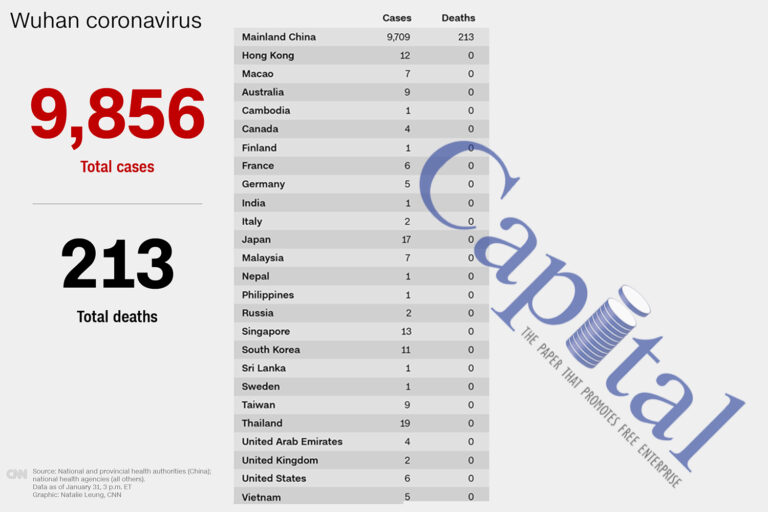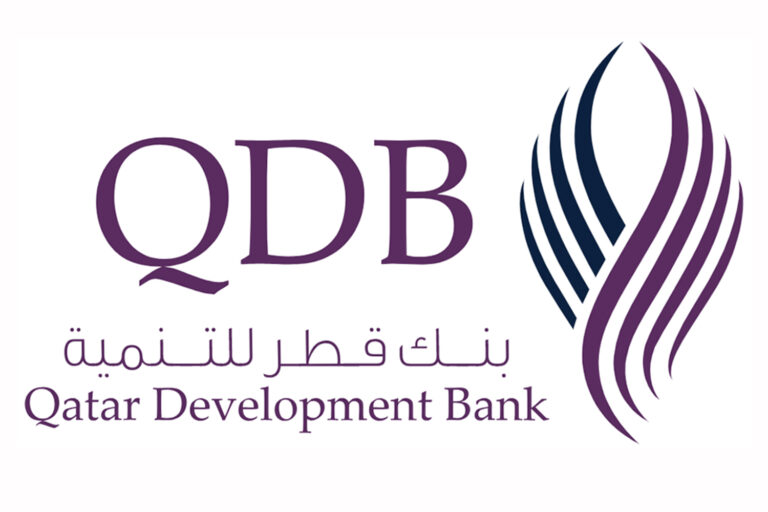The World Health Organisation has identified Ethiopia as one of the 13 high-risk African countries for coronavirus. Others are Algeria, Angola, Ivory Coast, DR Congo, Ghana, Kenya, Mauritius, Nigeria, South Africa, Tanzania, Uganda, and Zambia.
According to a statement issued on Friday, WHO said the identified African nations have direct links or a high volume of travel to China.
The statement reads “WHO has identified 13 top priority countries (Algeria, Angola, Cote d’Ivoire, the Democratic Republic of the Congo, Ethiopia, Ghana, Kenya, Mauritius, Nigeria, South Africa, Tanzania, Uganda and Zambia) which either have direct links or a high volume of travel to China.”
“To ensure rapid detection of the novel coronavirus, it is important to have laboratories which can test samples and WHO is supporting countries to improve their testing capacity. Since this is a new virus, there are currently only two referral laboratories in the African region which have the reagents needed to conduct such tests.”
“However, reagent kits are being shipped to more than 20 other countries in the region, so diagnostic capacity is expected to increase over the coming days. Active screening at airports has been established in a majority of these countries and while they will be WHO first areas of focus, the organization will support all countries in the region in their preparation efforts,” the WHO said in a statement.
“It is critical that countries step up their readiness and in particular put in place effective screening mechanisms at airports and other major points of entry to ensure that the first cases are detected quickly,” added WHO Regional Director for Africa, Dr. Matshidiso Moeti.
“The quicker countries can detect cases, the faster they will be able to contain an outbreak and ensure the novel coronavirus does not overwhelm health systems,” the statement added.
There are no confirmed cases of the potentially fatal virus on the African continent as at the time of filing this report, as test results from four suspected cases of coronavirus in Ethiopia have come back negative, the Ministry of Health announced.
Four Ethiopians arriving in Ethiopia from China were quarantined after two were suspected to be carriers of the coronavirus. The other two individuals were quarantined as they were accompanying travelers. Blood samples were sent to South Africa for further investigation and have come back negative, showing that the virus has not entered Ethiopia.
A statement from Ethiopian Airlines stated that the flag carrier will continue operating flights to all five gateways in China – Beijing, Shanghai, Guangzhou, Chengdu and Hong Kong.
The airline mentioned that it is working together with “all relevant Chinese and Ethiopian authorities” to protect both passenger and crew members from the coronavirus, in compliance to the guidelines by World Health Organization (WHO), International Air Transport Association (IATA) and Centers for Disease Control and Prevention (CDC). However other African airlines are suspending their flights to and from China.
The American Airlines pilots’ union said on Thursday that it was suing the airline in an attempt to halt all service between the United States and China, citing “a threat to the safety of passengers and flight crew.” In a statement, the union, the Allied Pilots Association, said it was instructing its members to turn down requests to fly to China.
The airline had previously announced that, because of declining demand, it would suspend flights from Los Angeles to Beijing and Shanghai starting on Feb. 9. Service from Dallas to those cities is expected to continue.
The death toll from China’s coronavirus outbreak has surpassed 250, the government said on Saturday, as foreign nations tightened restrictions on travellers from China in response to the rapid spread of the illness.
At least 259 people have died and 11,791 people have been infected in China by the new coronavirus, according to new figures from China’s health officials.
As a result of the rapid international spread of the virus, WHO has declared the outbreak a ‘global public health emergency.’
In related development, an estimated 75,815 people in Wuhan, China could be infected with the novel coronavirus as of January 25, researchers in Hong Kong said.
Gabriel Leung, one of the authors of study published Friday in the medical journal The Lancet, said the estimates could be much higher than the number of confirmed cases because “not everyone who is infected would require or seek medical attention.”
Leung, who is the chairman of public health medicine at the University of Hong Kong, and the other authors cautioned “that given the lack of a robust and detailed timeline of records of suspected, probable, and confirmed cases and close contacts, the true size of the epidemic and its pandemic potential remains unclear.”
The World Health Organization declared on Thursday that the new coronavirus outbreak was a global health emergency, acknowledging that the disease represents a risk outside of China, where it emerged last month.
The declaration – officially called a Public Health Emergency of International Concern – serves notice to all United Nations member states that the world’s top health advisory body rates the situation as serious.
Countries can then decide whether to close their borders, cancel flights, screen people arriving at airports or take other measures.
The decision came as cases have begun to appear in people who had not traveled to China during the outbreak.
Saturday February 1
Iraq’s Basra airport to deny entry to travellers from China
Iraq’s Basra International Airport will deny entry to passengers of any nationality travelling to Iraq from China, the state news agency reported.
Cyprus treats first suspected case of coronavirus
Cyprus said it was treating its first suspected case of coronavirus after a man arrived from China showing signs of the illness.
A statement by the Mediterranean island’s Ministry of Health said: “A Chinese citizen residing in Cyprus who had visited China in the past few days presented symptoms similar to that of the coronavirus.”
US announces 14-day quarantine on 195 virus evacuees
The US issued a rare federal quarantine order of 14 days for 195 Americans who were evacuated from Wuhan.
It came after one of the individuals tried to leave the California military base where the repatriated citizens landed on a chartered flight on Wednesday, and is the first directive of its kind in over 50 years.
El Salvador and Costa Rica take ‘prudent’ measures
El Salvador has announced blanket restrictions on people who have recently been in China.
Costa Rican officials said they will monitor transit points such as airports, but for now, will allow Chinese travellers to enter the country.
Two more employees of German car supplier get coronavirus
German car parts supplier Webasto said that two more of its employees have tested positive for the coronavirus, making a total of seven who have contracted it.
Guatemala restricts entry from China
Guatemala’s government is imposing blanket travel restrictions on people who have recently been in China, President Alejandro Giammattei said.
Pasteur Institute eyes coronavirus vaccine in 2021
France’s Pasteur Institute Foundation said it had set up a taskforce aimed at developing a vaccine against the coronavirus in 20 months.
Delta, American and United suspend flights between US, China
Delta Air Lines and American Airlines said they will suspend all flights between the US and China.
United Airlines announced that it will suspend flights to Beijing, Shanghai and Chengdu but continue flights to Hong Kong.
India bans export of protective masks, clothing
India said it had banned the export of personal protection equipment such as masks and clothing amid a global coronavirus outbreak.
Wuhan mayor: Containing virus still ‘severe, complex’ task
The task of containing and preventing the spread of the coronavirus outbreak in the central Chinese city of Wuhan remain “severe and complex”, its Mayor Zhou Xianwang said.
Supplies of masks and other medical resources are still inadequate, Vice Mayor Xu Honglan said.
Tokyo 2020 Olympics dismiss cancellation fears
Tokyo 2020 Olympics organisers dismissed rumours that the Games were endangered by the spread of the coronavirus.
“We have never discussed cancelling the Games. Tokyo 2020 will continue to collaborate with the (International Olympic Committee) IOC and relevant organisations and will review any countermeasures that may be necessary,” organisers said in a statement to the German news agency DPA.
Myanmar turns back China Southern flight
Authorities in Myanmar have turned back a China Southern flight from Guangzhou with almost everyone on board after one of the passengers was found with flu symptoms similar to the fast-spreading coronavirus, a government spokesman said.
Facebook to remove coronavirus misinformation
Facebook has said it will take down misinformation about the coronavirus in a rare departure from its approach to health content.
Turkish Airlines halts all flights to and from mainland China
Turkish Airlines has suspended all flights to and from mainland China and is redirecting four flights currently in the air back to Istanbul.
Kenya Airway suspends all flights to China
Kenya Airways has suspended all flights to and from China until further notice.
“We have temporarily suspended all flights to and from Guangzhou starting Friday until further notice,” the airline said in a statement on its Twitter account.
RwandAir suspends all flights to China
RwandAir has halted flights to and from China until further notice.
“RwandAir is to suspend flights with immediate effect between the Rwandan capital, Kigali, and the Chinese city of Guangzhou,” the airline said in a statement. “The decision will be reviewed later in February.”







